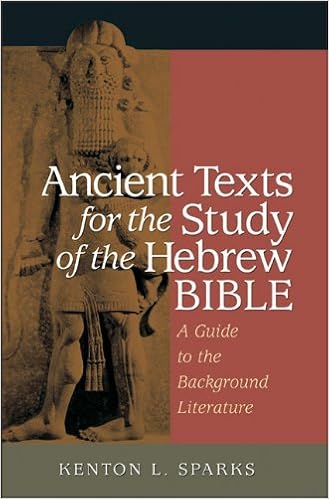The Hebrew Bible wasn’t written in a vacuum. The writers were part of a culture spanning the entire Fertile Crescent. That culture included a complex set of literary forms, genres, and content. There is more than just historical background to be gained from a study of the literary context of the Hebrew Bible. For one thing, many of the types of literature are alien to our own times, e.g., the use of genealogies. Here is a book that provides a doorway into the study of that literature:
Kenton L. Sparks, Ancient Texts for the Study of the Hebrew Bible: A Guide to the Background Literature, Baker Academic, 2005, pp 514.

A detailed table of contents can be found here. I had thought to review the book in detail, but I found a number of reviews that do a thorough job of describing and critiquing it here, here, here, and here.
This book is not a collection of texts, either in the original or in translation. Rather, it is a book-length bibliographic essay. After an introductory discussion of the theory and philosophy of comparative literature and genre analysis (with a bibliography!), he proceeds to survey the ancient near east’s repositories of texts. Each section has a short introduction and the relevance of the literature to the Hebrew Bible. Then a bibliography follows the section with the citation of the publication of the primary texts, translations and analysis, followed by important monographs and articles. For the interested student, those references contain pointers to the broader secondary literature and academic conversation about those texts and their relationships to the Hebrew Bible.
This is a reference work, although as someone who enjoys reading encyclopedias and lexica page by page for fun, I find this a fascinating work. It will not replace a general treatment of the literature of the ancient near east, nor does it provide an introduction to the literature of the Hebrew Bible itself. But it fills a niche in the important area of understanding the Hebrew Bible in its ancient context. For seminary teachers, teachers of religious studies, Bible scholars, even specialists in the ancient near east, you need this book on your shelf, ready to hand.
Leave a Reply